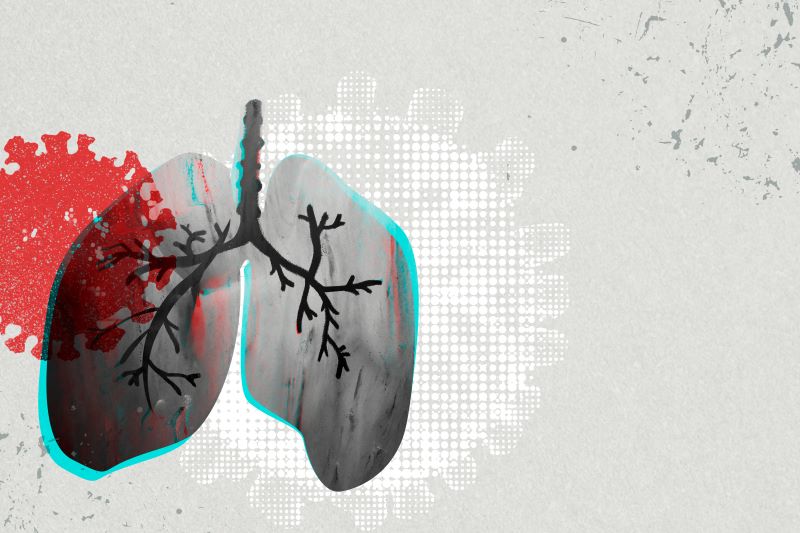Breathing patterns can alter during viral infections or other life events and may not revert to baseline. This is very common with people with long-COVID.

If so you may benefit from one of our breathing retraining programmes.
The body has been designed for survival therefore it will make adjustments within the systems of the body to cope with inefficient breathing. This may lead to a myriad of symptoms which may resolve with breathing re-education.
Robin McNelis is a specialist cardio-respiratory physiotherapist who has been working with breathing pattern disorders since 1999, from intensive care patients all the way up to professional athletes. Since the summer of 2020 he has been focused on assisting the recovery of Long Covid patients in a variety of settings (private hospital, NHS Long Covid Service and private practice) and has treated over 1000 patients so far. He specialises in breathing re-training techniques, alongside ‘micro-pacing‘, fatigue management and other lifestyle modifications related to long-COVID recovery. Robin draws on his own personal experience of recovering from Long COVID. If you require a detailed assessment of breathing as well as advice and guidance on POTS management, pacing and micro-pacing, a consultation with Robin is for you.
Robin talks about his personal journey with Long COVID and the science behind some of the breathing exercises used in Long COVID recovery in the above Podcast.
Louise Oliver works as an NHS GP, and as a Functional Breathing Practitioner. She offers a dedicated 5-month breathing retraining programme, combining webinars on the science behind breathing retraining with bespoke guidance in 1:1 sessions on how to improve breathing efficiency. Her programme is rooted in Buteyko technique and taught in a gentle, holistic manner.
The aim of working with Louise is to reprogramme your unconscious breathing pattern to use the nose, be quiet, slow and driven by the diaphragm whilst resting and sleeping. Dr Oliver is passionate you understand the science and your mind, body, breath connection therefore the programme is divided into five treatment sessions which will be paced according to your needs. It takes at least 3-4 months for breathing to become unconsciously efficient however benefits are experienced beforehand. You are encouraged to watch the pre-recorded webinar prior to your consultation with Louise to help you gain the most from each treatment session. If you are interested in the science behind breathing retraining and ready to commit to a comprehensive programme, working with Dr Oliver is for you.
| Treatment Session | Pre-recorded Webinar (1 month access) |
Individual Virtual Consultation with Louise |
Breathing Audios (1 month access) |
|---|---|---|---|
| 1 | 77 minutes | 1 hour | Included |
| 2 | 85 minutes | 40 minutes | Included |
| 3 | 66 minutes | 40 minutes | Included |
| 4 | 70 minutes | 40 minutes | Included |
| 5 | 82 minutes | 40 minutes | Included |
Nadyne McKie is a Recovery Focussed Psychotherapist and Clinical Mind Body Therapist. Drawing on her background in trauma therapy, nervous system regulation, and over five years experience in NHS mental health services, she weaves gentle breathing techniques into her sessions as a nervous system-friendly way to support recovery.
Her approach views the breath as a portal to the nervous system, offering a route back to safety and calm when the body feels overwhelmed, or stuck in survival mode.
For those living with Long Covid, the breath becomes a quiet but powerful ally helping the body feel supported and resourced, laying the foundations for recovery from the inside out. To learn more about Nadyne’s approach please follow this link.

The Long COVID Clinic website is intended for informational purposes only. It does not provide medical advice, diagnosis, or treatment. The content presented should not be relied upon as a substitute for professional medical guidance.
This platform offers a means to book an appointment with qualified healthcare professionals who can assess your condition in person. If you are experiencing a medical emergency or urgent symptoms, please call 999 or visit your nearest emergency department immediately.
Always consult a licensed medical practitioner for any concerns related to your health.
More information on this is available here.